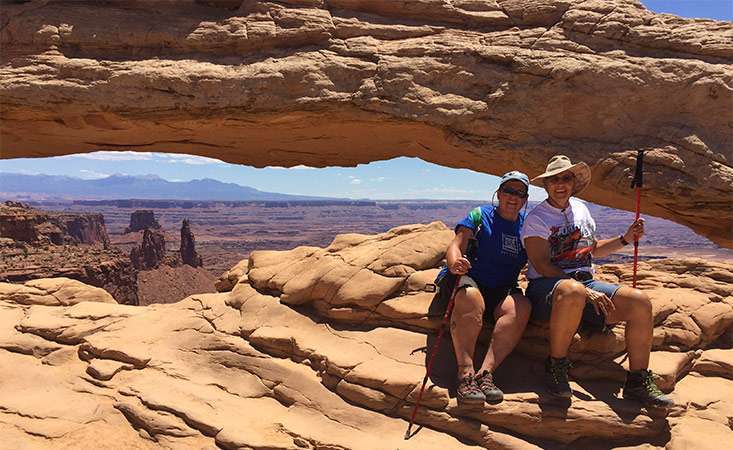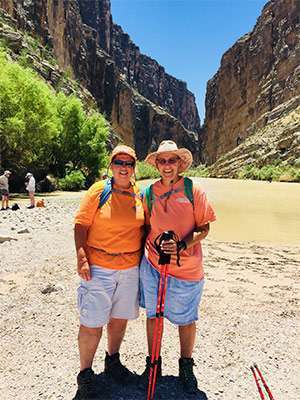
Lori and Terri in Canyonlands National Park
This summer, Lori and Terri are road tripping to more than 20 national parks across the United States. The trip is more than the adventure of a lifetime; it symbolizes their commitment to keep hope alive.
Terri was diagnosed with pancreatic cancer in 2014. In late 2015, after a recurrence, her healthcare team told her she had six months to a year to live.
Lori advocated for Terri when she was not strong enough to advocate for herself. She told Terri that they needed to look elsewhere for answers.
Lori’s research included connecting with the Pancreatic Cancer Action Network’s PanCAN Patient Services, who provided a list of pancreatic cancer specialists Terri could meet with to get second opinions. After hearing them out, Terri decided to work with a specialist on creating a new treatment plan. Now, two and a half years after being told by one doctor that she wouldn’t live more than a year, Terri is traveling across the country on the couple’s epic road trip.
“Terri is determined to live to be 90, and I believe she will,” Lori said. “It is that determination that defies this disease.”

Lori and Terri hiking along the Rio Grande Riverbed in Big Bend National Park
Lori writes about their road trip and Terri’s story of survival on her blog, The Journey. She designed the blog to bring hope to patients and caregivers.
Providing further wisdom to caregivers, Lori shared five tips:
- Take care of yourself: “You cannot take care of your loved one unless you take care of yourself. Make sure you give yourself breaks, such as making time to see friends.”
- Know that you are strong enough: “You will find the inner strength you need to care for a loved one.”
- Don’t be afraid to ask your healthcare team questions, voice concerns and get other opinions: “Too many people are afraid to speak up.”
- Do what your loved one enjoys: “For those fighting this disease, doing what brings a patient the most joy is the best medicine. I see that in Terri every time she gets on her bike or we are out in nature.”
- Listen to your loved one: “I can be better at this. I sometimes want to push Terri, like telling her she can do a few more miles on a bike ride. But she’ll tell me that she’s finished and then I say ‘OK.’ She needs to listen to her body, and I need to listen to her.”
So far, their road trip has been full of biking, hiking and seeing the country. “We don’t dwell on the diagnosis,” Lori said. “We are enjoying the journey.”
















